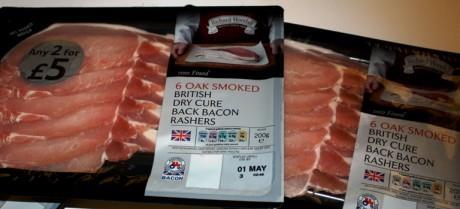
This week's report from the International Agency for Research on Cancer (IARC) has drawn alarmist headlines in the national media but has been met with a balanced response from those in industry.

Chris Godfrey, Godfrey’s Butchers, London: “They’re not saying that meat’s bad for you. What they’re saying is that a healthy diet is good for you, which we already knew.“Most people read these things, they’re quite intelligent enough to be able to realise that it’s not as bad as smoking a cigarette.”


Chief executive of the National Federation of Meat and Food Traders (NFMFT) Roger Kelsey: “There is no new research, no new evidence and no new advice. The statement issued yesterday by IARC follows days of deliberation, where 22 experts from 10 countries reviewed information up to twenty years old and concluded what everyone knew already recognising the nutritional value of eating meat and the part red meat plays in a balanced healthy diet!“Independent butchers have always been receptive to such scientific advice as IARC offers, having over the years successfully reduced fat, the use of salt, sugars and other additives in meat products they produce. To the extent that the report recognises that as consumers we would have to increase our daily average intake of processed meat three fold from 17grams to more than 50 grams a day for the risk of contracting pancreatic, prostate or colorectal cancer to substantially increase!"Meurig Raymond, NFU president: “The NFU has always stated that eating lean red meat has an important role to play in a healthy balanced diet. It’s a traditional part of the British lifestyle and is enjoyed by most of the population.“The scientific and medical communities both agree that consuming recommended quantities of red meat is beneficial to human health and provides the body with a ready source of essential vitamins and minerals.”

Maureen Strong, nutrition manager, Agriculture & Horticulture Development Board (AHDB): “The International Agency for Research on Cancer (IARC) isn’t saying eating red and processed meat as part of a balanced diet causes cancer: no single food causes cancer. Nor is it saying it’s as dangerous as smoking, which Cancer Research UK has pointed out. IARC itself has said that the risk from processed meat remains small.“The government looked at the same evidence in 2010 and recommended people eat no more than 70g of red and processed meat a day: and that’s exactly what the vast majority of us are eating. The government has already said that this advice is not changing. IARC’s findings suggest that eating 50g of processed meat brings a small increase in risk. However, average consumption in the UK is just 17g per day. People would need to eat three times their current levels to increase their risk.“Red and processed meat plays an important role in a balanced diet, providing protein, iron, zinc and B vitamins. There’s no evidence that removing meat from your diet protects against cancer. In fact a major, long term study by Oxford University has shown no difference in colorectal cancer rates between meat eaters and vegetarians.”

Jim McLaren, chairman of Quality Meat Scotland: “It is important to note that the IARC report also clearly recognises the nutritional benefits of eating red meat.“It is equally important to consider the background to this report. The IARC has looked at over 900 substances since 1971 and decided that all, apart from one, is at least capable of causing cancer in certain circumstances. These substances include such diverse products as coffee, paint, hairdressing products and talcum powder.“IARC’s findings suggest that eating 50g of processed meat brings a small increase in risk. However average consumption in the UK is just 17g per day so people would have to eat three times their current level to increase their risk.“Avoiding red meat could in fact be detrimental to health – for example around 40% of women and teenage girls have iron intakes which are too low. Red meat is a natural source of protein, iron, zinc and B vitamins and we should continue to enjoy it in the knowledge that it plays a vital role in our diets.”McLaren also pointed out that vegetarians were found to have the same rate of bowel cancer as meat eaters in one of the biggest studies of its kind in the UK carried out by Oxford University.
This story was originally published on a previous version of the Meat Management website and so there may be some missing images and formatting issues.















